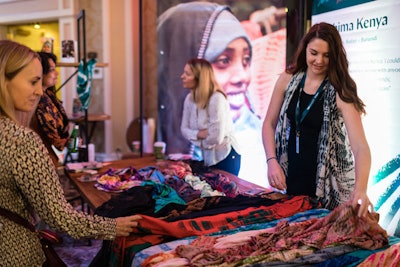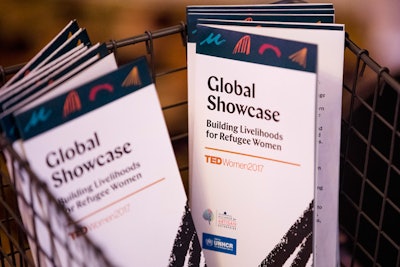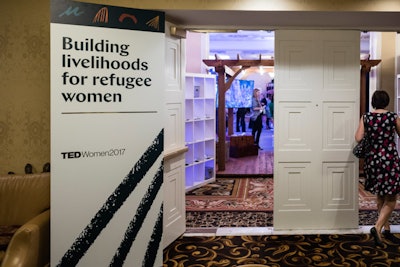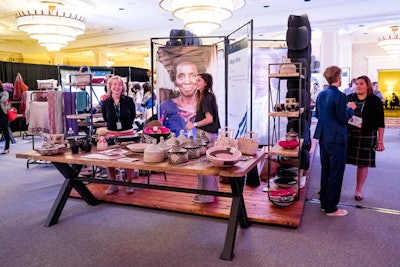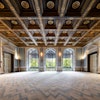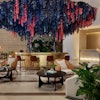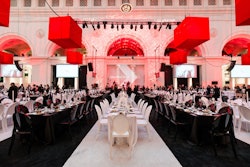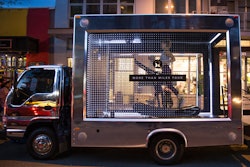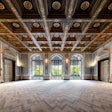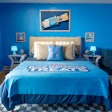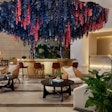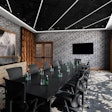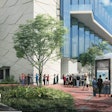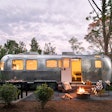TED hosts events throughout the year and around the world, all united behind the concept of “Ideas Worth Spreading.” Usually those ideas are shared in the form of brief, inspiring talks on stage by a diverse roster of presenters. But at the TEDWomen conference, November 1 to 3 in New Orleans, some of the most powerful storytelling took place in an artisan marketplace set up in a ballroom at the Roosevelt New Orleans hotel. There, representatives from 11 artisan enterprises that work with refugee women in remote communities around the world shared the plight of refugees and invited attendees to purchase their products.
“TEDWomen is just as much about the experience between theater sessions as it is about the TED Talks. To keep the event's eye-opening, inspirational spirit brimming from moment to moment, we’re always looking for new and interesting experiences to bring in,” said Pat Mitchell, editorial director for TEDWomen. Mitchell is on the advisory board of the Alliance for Artisan Enterprise, part of the Aspen Institute’s Global Health and Development program and the organization that hosted the artisan showcase.
“So often we hear about the vastness of the crisis, but being able to tell the stories about some of these individuals and show how even a small project can change people’s lives is so important,” said Gina Rogari, the Alliance’s program associate. “And it fits with that overall TED message of trying to bring people together to learn from one another and to think about how to improve the world.” Rogari said it was also a natural fit with the conference theme, Bridges, since the showcase created a connection to these women around the world and also because their handiwork is their bridge to economic security.
In a 3,000-square-foot space inside the ballroom, colorful scarves, baskets, jewelry, carpets, and other products made by refugees living in countries such as Burkina Faso, Pakistan, Rwanda, and more filled the tables. Representatives from each of the enterprises staffed the tables and answered questions from conference guests. In addition, screens at the entrance to the marketplace and inside the room showed videos to educate attendees about the issue.
“We wanted to be able to bring people into the feeling of a refugee camp and to understand a little bit better how these people are living and how working with their hands can be both a healing process and a rebuilding process,” Rogari said. During a break in the conference program, organizers hosted a panel discussion with representatives from three of the refugee organizations, the director of the Alliance for Artisan Enterprise, and the C.E.O. of U.S.A. for UNHCR, an organization that supports the UNHCR, the United Nations Refugee Agency.
In 2016, the Alliance tested the showcase concept at TEDWomen when it brought in about a dozen artisan enterprises from around the world for a few hours during the opening celebration. Rogari said the positive feedback encouraged them to bring it back this year, keeping it open during the entire conference and focusing on organizations that work with refugees.
